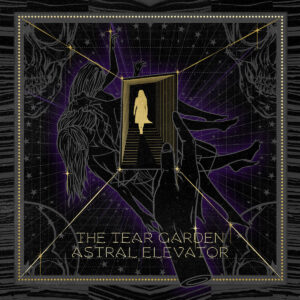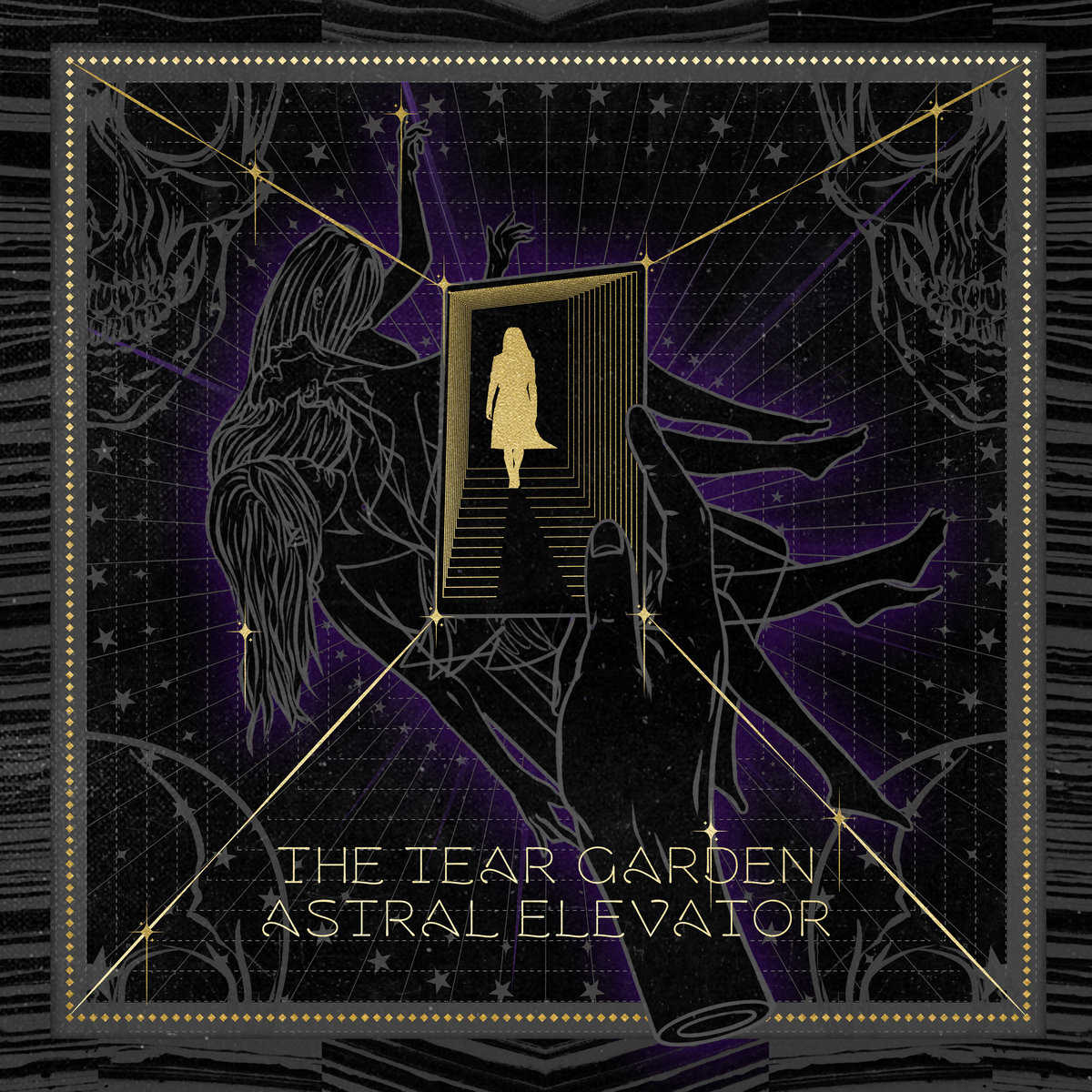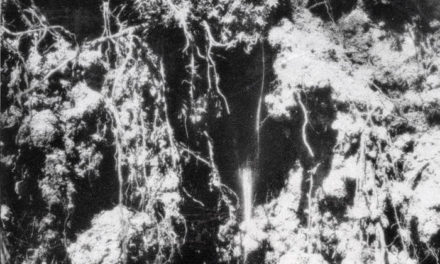
The Tear Garden
Astral Elevator
Artoffact Records
The Tear Garden exists because in the early eighties Cevin Key, then the drummer for Images in Vogue, sent Edward Ka-Spel of the Legendary Pink Dots a letter with a picture of his collection of Dots LPs and cassettes. From that sprang a friendship of forty years and The Tear Garden, a strange and beautiful expression of the duo’s shared love for left-of-center electronic psychedelia. While less active than in their first decade or two of existence (their last LP was 2017’s The Brown Acid Caveat, their occasional reunions retain the charm, melancholia and whimsy that have defined their partnership, qualities that make new album Astral Elevator a pleasure to take in, in all its idiosyncratic, kaleidoscopic, comfortably low-key glory.
As with all their material, the shape of The Tear Garden isn’t defined by the myriad styles they’ve indulged in, from post-industrial, to dub, to neo-folk and beyond, but by the ways in which Ka-Spel and Key’s individual takes on psych and composition mesh so smoothly. From Ka-Spel you get the proggy, poetic, and often entirely inscrutable, as on the reversed vocals that adorn the synthetic symphonics of “In the Name Of”, and the creepy domestic scene that sets up the eight minutes of cut and paste samples and seemingly random but entirely intentional synth sequences on the head-scratching “Square Root”. From Key you get the dank Pacific Northwest psychotropics, like the rubbery modular buzzes and bleeps of “Going Up”, and the dubby horns and delayed bells that make up “Swallow the Leader”.
But The Tear Garden has never been about who brought what sound to the table, but by how beautiful, confounding and strange the sounds they make together can be. The shimmery textures that flow around the simple drum loop at the center of the poignant “War Crier” are so lovely that they can almost offset the heartbreak in Ka-Spel’s voice as he sadly intones “I’ll love again despite the war/This neverending bloody war”. In direct contrast, any fan of the pairing should get a small, private thrill in hearing the wheezing organish keys at the outset of “A Return” give way to a choir of Ka-Spels heralding his own return, backed by percussion sequences that invoke Key’s history of rhythmic counterplay.
It’s these moments that make Astral Elevator such a pleasure to spend time with, even in its oddest moments; “Chow Mein” is no less delightful for its cannibalistic-tastes-like-chicken lyrical premise, nor is “Toten Tanz” unlovely in its tense and spiraling arrangement. Key and Ka-Spel’s musical partnership remains a lovely little step sideways out of time, off-kilter but eternally welcoming and pleasing to visit with.






Trackbacks/Pingbacks